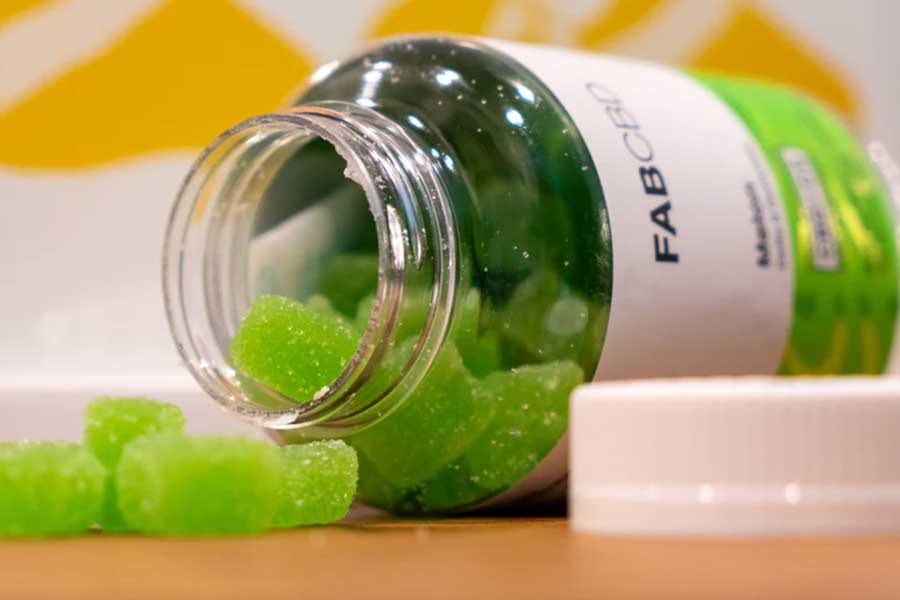
CBD, short for cannabidiol, has garnered widespread attention for its potential health benefits. Derived from the cannabis plant, CBD is non-psychoactive and offers a natural alternative for various ailments.
In recent years, research into CBD’s therapeutic properties has flourished, shedding light on its efficacy in alleviating a range of symptoms.
From chronic pain to anxiety, the benefits of CBD are vast and diverse. Let’s delve into the world of CBD and explore its potential to enhance overall wellness.
In the realm of natural wellness, CBD, short for cannabidiol, has emerged as a game-changer. From relieving stress to promoting better sleep, the benefits of CBD are vast and transformative.
CBD, short for cannabidiol, has taken the health and wellness world by storm. From oils to gummies, it seems like CBD products are everywhere these days. But what exactly are the surprising benefits of CBD that make it such a hot topic? Let’s dive into the emotional and unexpected advantages that CBD brings to the table.
Join us on a journey through the incredible advantages that CBD offers, backed by insights, personal experiences, and expert knowledge.
Understand CBD
CBD is a non-psychoactive compound derived from the cannabis plant. Unlike THC, it doesn’t induce a “high.” Instead, it interacts with the endocannabinoid system, a complex network in the body linked to various physiological processes.
CBD interacts with receptors in the endocannabinoid system, influencing neurotransmitter release and promoting balance. This interaction contributes to the wide-ranging benefits CBD offers for mental and physical well-being.
CBD is one of over 100 cannabinoids found in the cannabis plant. Unlike its counterpart THC (tetrahydrocannabinol), CBD does not induce a euphoric high commonly associated with cannabis consumption.
Instead, CBD interacts with the body’s endocannabinoid system, which plays a crucial role in regulating various physiological functions, including pain sensation, mood, appetite, and sleep.
Benefits of CBD
Enhancing Relaxation
In a fast-paced world, CBD serves as a natural relaxant. It helps alleviate stress by interacting with receptors associated with mood regulation, promoting a calm and focused state.
One of the most well-known benefits of CBD is its ability to alleviate pain.
Studies suggest that CBD may interact with neurotransmitters and receptors in the brain and immune system to reduce inflammation and mitigate discomfort associated with chronic conditions such as arthritis, multiple sclerosis, and neuropathic pain.
Managing Stress and Anxiety
CBD’s anxiolytic properties make it a valuable tool in stress management. By modulating the release of neurotransmitters, it helps reduce anxiety levels and enhance overall mental well-being.
In today’s fast-paced world, anxiety and stress have become pervasive issues affecting millions of people worldwide.
CBD shows promise as a natural remedy for anxiety disorders, including generalized anxiety disorder (GAD), social anxiety disorder, and post-traumatic stress disorder (PTSD).
By interacting with serotonin receptors in the brain, CBD may help regulate mood and promote a sense of calmness and relaxation.
Improving Quality Sleep
For those struggling with sleep issues, CBD may offer relief. It interacts with receptors involved in the sleep-wake cycle, promoting better sleep quality and addressing common insomnia challenges.
Quality sleep is essential for overall health and well-being. However, many individuals struggle with sleep disorders such as insomnia, which can have a detrimental impact on daily functioning.
CBD may offer a solution by promoting relaxation and reducing anxiety, thus facilitating better sleep quality.
Additionally, CBD has been shown to regulate the sleep-wake cycle, leading to more restful and rejuvenating sleep.
Alleviating Chronic Pain
One of the most celebrated benefits of CBD is its potential to relieve chronic pain. It interacts with receptors in the body’s endocannabinoid system, reducing inflammation and minimizing discomfort.
Boosting Skin Health
CBD’s anti-inflammatory properties extend to skincare. Incorporating CBD into skincare routines may soothe irritated skin, reduce redness, and contribute to a healthier complexion.
CBD’s anti-inflammatory and antioxidant properties extend to skincare, where it has gained popularity as a natural remedy for various skin conditions.
From acne to eczema, CBD-infused skincare products offer soothing relief and promote overall skin health.
CBD may help reduce inflammation, regulate sebum production, and prevent oxidative stress, leading to clearer, smoother, and more radiant skin.
Promoting Heart Health
Emerging research suggests that CBD may have cardiovascular benefits. It could help maintain heart health by influencing blood pressure and reducing the impact of cardiovascular stressors.
Maintaining cardiovascular health is crucial for longevity and well-being. Preliminary studies suggest that CBD may benefit heart health by lowering blood pressure, reducing inflammation, and preventing oxidative stress.
By promoting vasorelaxation and improving blood flow, CBD may help mitigate the risk of heart disease and related complications.
Easing Inflammation
CBD’s anti-inflammatory effects make it a promising option for managing inflammation-related conditions. Users report relief from conditions like arthritis and inflammatory skin disorders.
Potential Anti-Seizure Properties
CBD gained FDA approval for treating certain seizure disorders. Studies indicate its potential in reducing the frequency and severity of seizures in individuals with epilepsy.
CBD is a compound found in the cannabis plant, known for its potential therapeutic properties. Unlike its counterpart THC, CBD doesn’t induce a “high,” making it a popular choice for those seeking natural remedies without the psychoactive effects.
Is CBD Safe To Use
CBD (cannabidiol) is generally considered safe for use by the majority of individuals. However, there are important considerations and caveats to keep in mind:
1. Non-Psychoactive
CBD is non-psychoactive, meaning it doesn’t produce the “high” associated with THC (tetrahydrocannabinol), another compound found in cannabis.
2. Side Effects
While CBD is well-tolerated by most, some individuals may experience mild side effects, such as dry mouth, fatigue, or changes in appetite. These effects are usually temporary and mild.
3. Interaction with Medications
CBD can interact with certain medications. It’s crucial to consult with a healthcare professional before using CBD, especially if you are taking prescription medications.
4. Quality and Purity
The safety of CBD products depends on their quality and purity. Choose products from reputable manufacturers that undergo third-party testing to ensure accuracy and absence of contaminants.
5. Dosage Considerations
Start with a low CBD dosage and gradually increase if needed. Individual responses to CBD can vary, and finding the right dosage is important for optimal results.
6. Pregnancy and Breastfeeding
Pregnant or breastfeeding individuals should consult with a healthcare provider before using CBD, as the impact on fetal development is not fully understood.
7. Legal Status
Check the legal status of CBD in your region, as it varies worldwide. Ensure compliance with local regulations.
8. Adverse Reactions
While rare, some individuals may be hypersensitive to cannabinoids. If you experience adverse reactions, discontinue use and seek medical advice.
9. Quality Research
Although research on CBD’s safety is ongoing, there is a lack of extensive long-term studies. Stay informed about the latest research developments.
10. Full-Spectrum vs. Isolate
Consider whether you prefer full-spectrum CBD (containing other cannabinoids) or CBD isolate (pure CBD). Full-spectrum products may have trace amounts of THC.
It’s crucial to approach CBD use responsibly, particularly if you have pre-existing health conditions or are taking medications. Consulting with a healthcare professional ensures personalized advice based on your individual health profile. Always choose high-quality CBD products from reputable sources to enhance safety and efficacy.
How to use CBD Products?
Using CBD products can vary depending on the type of product and your specific needs. Here’s a general guide on how to use common CBD products:
1. CBD Oil Tinctures
- Usage: Place the desired amount of CBD oil under your tongue using a dropper.
- Dosage: Start with a low dose and gradually increase until you achieve the desired effects.
- Hold and Swallow: Hold the oil under your tongue for 30-60 seconds before swallowing. This allows for sublingual absorption.
2. CBD Gummies
- Dosage: Follow the recommended dosage on the product label.
- Chew and Swallow: Simply chew and swallow the recommended number of CBD gummies. The effects take longer to kick in compared to tinctures.
3. CBD Topicals (Creams, Balms, Lotions)
- Application: Apply a small amount of CBD topical to the affected area.
- Massage In: Gently massage the topical into the skin until fully absorbed.
- Frequency: Use topicals as needed for targeted relief.
4. CBD Capsules
- Dosage: Follow the recommended dosage on the product label.
- Swallow with Water: Take CBD capsules with a glass of water. Effects may take longer to manifest compared to tinctures.
5. CBD Vape Products
- Vaping Device: Use a vaporizer or vape pen designed for CBD vape products.
- Inhale: Inhale the vapor directly into your lungs for quick absorption.
- Start Low: Begin with a low dosage, especially if you are new to vaping CBD.
6. CBD Edibles
- Dosage: Follow the recommended serving size on the product label.
- Ingestion: Consume CBD edibles like chocolates, cookies, or beverages. Effects take longer to kick in compared to tinctures.
7. CBD Pet Products
- Dosage: Follow the recommended dosage for your pet’s size and weight.
- Mix with Food: Add CBD oil for pets to their food or administer as directed by the product instructions.
General Tips
- Consistency is Key: For regular use, maintain a consistent schedule and dosage.
- Start Low, Go Slow: Begin with a low CBD dosage and gradually increase until you achieve the desired effects.
- Consult with a Professional: If you have specific health concerns or are taking medications, consult with a healthcare professional before using CBD products.
It’s important to note that individual responses to CBD vary, and it may take some experimentation to find the optimal dosage and method of consumption for your needs. Always choose high-quality CBD products from reputable manufacturers, and if you have any concerns or questions, seek advice from healthcare professionals familiar with CBD use.
Frequently Asked Questions About CBD
What are the primary benefits of using CBD?
CBD, or cannabidiol, offers a range of potential benefits. These include stress relief, anxiety management, improved sleep quality, pain alleviation, and anti-inflammatory effects.
Can CBD help with anxiety and stress?
Yes, many users report that CBD has anxiolytic properties, meaning it can help reduce anxiety levels and promote a sense of calmness. It achieves this by interacting with receptors associated with mood regulation.
Is CBD effective for managing chronic pain?
Research suggests that CBD may have analgesic (pain-relieving) properties. By interacting with receptors in the endocannabinoid system, CBD may reduce inflammation and alleviate chronic pain conditions.
What is the Recommended CBD Dosage?
Determining the right CBD dosage varies based on factors like individual tolerance and the desired effect. It’s advisable to start with a low dose and adjust gradually.
Are There Any Side Effects of CBD?
While generally well-tolerated, some may experience side effects like fatigue or dry mouth. These effects are often mild and temporary.
Can CBD Interact with Medications?
CBD can interact with certain medications, impacting their metabolism. Consult with a healthcare professional before combining CBD with prescription medications.
How Long Does It Take for CBD to Work?
The onset of CBD effects varies. Factors like product type and individual metabolism influence how quickly users may feel the benefits, typically ranging from 15 minutes to an hour.
Is CBD Legal Everywhere?
CBD legality depends on regional regulations. In many places, CBD derived from hemp is legal, but it’s crucial to check local laws. The legal status of CBD varies by country and region.
In the United States, CBD derived from hemp containing less than 0.3% THC is federally legal, but regulations may vary at the state level and internationally.
Can I Give CBD to My Pet?
Yes, there are CBD products specifically formulated for pets. However, it’s advisable to consult with a veterinarian before introducing CBD to your pet’s routine to ensure proper dosage and safety.
Can CBD get you high?
No, CBD is non-psychoactive and does not produce a euphoric high like THC.
How should I take CBD?
CBD is available in various forms, including oils, tinctures, capsules, edibles, topicals, and vape products. The most suitable method of consumption depends on individual preferences and desired effects.
Can I overdose on CBD?
There is no evidence to suggest that CBD can cause overdose or lethal toxicity. However, taking excessive doses may lead to unwanted side effects, so it’s advisable to follow recommended dosage guidelines.
Conclusion
In conclusion, the surprising benefits of CBD span from anxiety relief to potential neuroprotective properties.
As CBD continues to captivate audiences seeking natural alternatives, it’s crucial to explore its potential responsibly and consult professionals when needed.
From pain relief to anxiety management, the benefits of CBD are vast and multifaceted. As research continues to uncover its therapeutic potential, CBD remains a promising natural remedy for various health conditions.
Whether you’re seeking relief from chronic pain, stress, or skincare woes, CBD offers a holistic approach to wellness that prioritizes balance and harmony within the body and mind.






